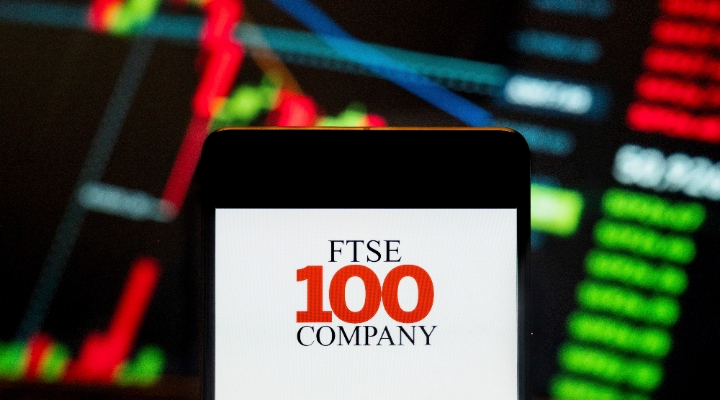As fund management groups face growing pressure on fees, commentators warn that adviser charges could be next in line.
Back in November, the Financial Conduct Authority revealed the results of its study which showed that over the long term many actively managed funds fail to beat the stock market after charges. As a result, the regulator called on asset managers to provide better value for money and greater competition on fees.
The study featured in the FCA’s interim report, published last November, which forms part of an ongoing review of the asset management sector. The watchdog concluded that fund management groups need to provide investors with better disclosure on total charges and greater value for money.
This regulatory pressure comes at a time when low-cost ‘passives’, such as ETFs and index funds, continue to grow in popularity. With this in mind, many suggest the direction of travel for fund fees will be downwards.
If this is the case, some warn that adviser fees will come under greater scrutiny.
Financial Advisers Need To Justify Their Fees
Gilly Green, a consultant at Knadel, expects downward pressure will be felt in all parts of the ‘value chain’ involved with the provision of financial advice and investment management.
“I think everyone will have their fees under scrutiny, and will have to justify what they do,” she said.
She suspects investment managers will feel the most pressure, while financial planners may be able to hold their fees steady – provided they can articulate the value they are able to add through tax planning. Investment management, on the other hand, is becoming increasingly commoditised, she said.
Steve Wilson, a director at Alan Steel Asset Management, takes a different view. He suspects advisers who provide financial planning but outsource investment management decisions to a third-party will see their fees called into question.
“A lot of advisers simply outsource to a discretionary investment manager. Clients might start to ask, “what am I getting for that 1%?”,” he said.
His firm provides investment management in-house and typically combines this service with financial planning for an annual fee of 0.6%.
Commission Ban Led to Higher Advice Charges
It is worth noting that significant changes have been introduced to advisers’ charges over the past five to 10 years. Sweeping reforms introduced were introduced in January 2013 - which aimed to improve fee transparency. This proved to be a catalyst for this change. The rules, known as the Retail Distribution Review, banned advisers and wealth managers from taking commissions from the products they recommend. Instead, they must charge a fee direct to the customer for the advice provided.
The upshot was that many advisers changed their remuneration and business models, moving to an ongoing charge, which was typically around 1% a year of assets under management.
Wilson notes that some consumers have seen their financial advice fees increase in recent years. This is likely to be down to rising regulatory costs for advice firms.
“If you look at the direction of travel over the past three to four years, it has been charges going up for clients,” Wilson said.
Given the events of the past few years, Green suggests that some advisers may be loath to make further changes to their charges – even if this means choosing not to pass on higher operating costs to their clients.
David Thomson, chief investment officer at VWM Wealth, expects that fees for both the investment management and financial planning sectors will get squeezed in future.
In the wake of the financial crisis in 2009, fees came under pressure. But this trend has dissipated over the past three to four years, he said. Thomson suspects the FCA’s recent focus on value for money will cause adviser fees to come back into focus.
Are Advisers Passing On Savings To Investors?
Financial advisers who invest completely in passives but do not pass on all of the cost savings to their clients could get their knuckles rapped by the regulator, he anticipates.
“A number of advisers have gone down the passive route and increased their own fees. They have kept some of the saving [from investing in lower cost passives] and have not passed all of this on to the client. They have also not provided any more service. The FCA has spotted that and they are not keen on it at all,” Thomson explained.
His firm charges clients an initial fee of 1% plus 1% on an ongoing basis for investment management and financial planning.
Thomson expects to see resistance to any downward pressure on advice fees, given that demand for financial planning remains high, particularly at a time when a growing number of people are taking control of their pension pots.
“Clients need financial planning, so I think advisers will resist the pressure on their charges,” he added.
The Rise of The Robo-Adviser
The emergence of robo-advice firms potentially adds further downward pressure on advice fees, according to Darren Thomas, a financial adviser from Thomas and Thomas Finance. These are online services for those with smaller sums to invest. Some deliver investment management online, while others provide automated financial advice. They are typically powered by computer models, using algorithms, and involve little or no human interaction.
Nevertheless, Thomas points out that one-to-one financial advice is very different to robo-advice. It is therefore understandable that the former is more expensive, given that the financial planner puts together a personalised financial plan for the client. He hasn’t personally seen any resistance from clients on fees, but says it has definitely become a focus for the media and regulator.
“We have not had one client say to us that they feel they are paying too much. We work hard to deliver value for our clients,” he said.
In the years ahead, Green expects some adviser firms may change their charging model completely. This would involve a shift away from the common model of charging a percentage of assets under management either to an hourly basis or flat fee.
“The age of the percentage fee might be going,” she added.
Wilson believes this would not be a positive thing for the client. In his view, charging on an hourly basis runs the risk that clients pay more, as advisers may take longer to deliver the service.
“We are performance-based. If the client’s pot of money goes up, then so does our fee. If it falls, so does our fee. Our goals are aligned with clients,” he concluded.





























